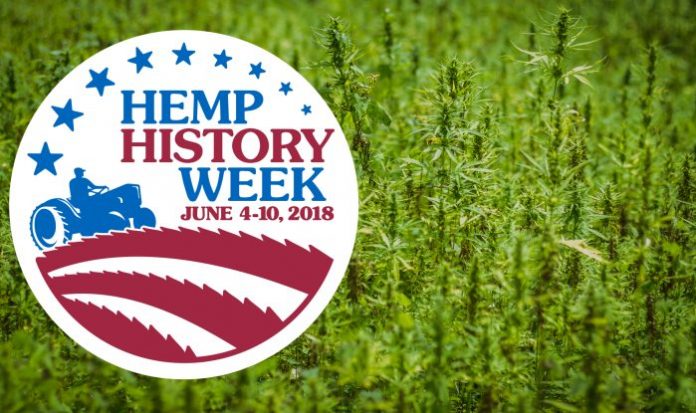This year’s Hemp History Week, running June 4 – 10, has the theme “Deep Roots” and will seek to put more pressure on changing federal laws restricting industrial hemp cultivation.
“Farmers and entrepreneurs are so eager to begin producing hemp at full commercial scale, to finally be able to supply with U.S. grown hemp the largest market for hemp in the world – that of the U.S.!” said Colleen Keahey Lanier, Executive Director of the Hemp Industries Association.
A video released as part of the event shares the story of the Rodale Institute’s pioneering research on organic, no-till farming of industrial hemp in Pennsylvania.
More than 250 related events will take place nationwide over the week, including film screening and community outreach efforts at farmer’s markets. On the political front, there were will state lobbying activities and a letter writing campaign. On June 7, Vote Hemp will hold a Hemp Lobby Day on Capitol Hill to push for the passage of the Hemp Farming Act of 2018, which already has strong support in the Senate.
A database of other events and more on Hemp History Week can be found here. The event is an industry-wide initiative of the Hemp Industries Association (HIA) and Vote Hemp.
“This Hemp History Week we come together in support of hemp farming, in support of giving our farmers a new valuable crop, in support of healthy American made products, and in support of a more sustainable future,” said Ms. Keahey Lanier.
Industrial hemp is an incredibly useful plant, providing everything from fiber to highly nutritional food to fuel. Additionally, it has potential to take carbon dioxide from the atmosphere and sequester it in the soil, and help mop up contaminated land (phytoremediation). Certain strains of hemp are also a rich source of cannabidiol (CBD), a compound of great interest for its potential in treating and managing a wide range of health conditions.
Hemp is fast-growing and requires fewer inputs than conventional crops. Unfortunately, as in Australia and some other countries, the USA’s hemp sector is still being held back by ridiculous laws and myths regarding the plant.


